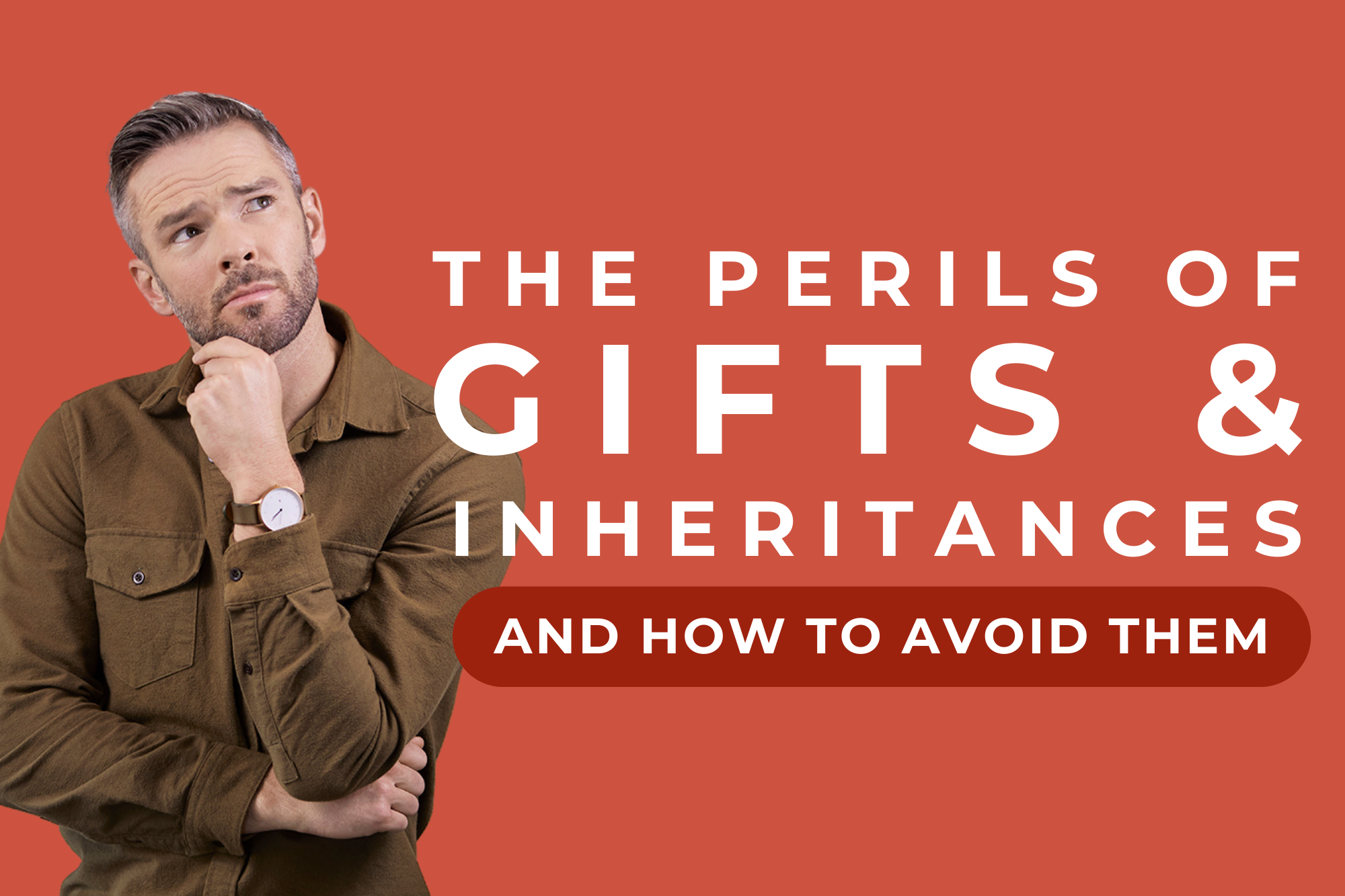The Perils of Gifts and Inheritances (and How to Avoid Them)
The Perils of Gifts and Inheritances (and How to Avoid Them)
DISCLAIMER
This information is intended for business owners in Canada and serves as general guidance only. Always consult with a qualified advisor before making any legal decision.
IN THIS ARTICLE, WE’LL COVER THE FOLLOWING TOPICS:
The two main legal risks of gifts and inheritances:
Divorce settlement
Providing financial assistance to your children
Divorce Settlement
There are many reasons why a divorce might go from bad to worse. One area that’s particularly prone to get messy is gifts and inheritances – shorthand for assets gifted to a single family member by a third party.
As it relates to divorces and family law, the British Columbia Family Law Act cleanly divides all family property (see Section 84, Family Law Act) between spouses – one gets half of the bank account, one gets the other half, and so on. Every divorce is unique, of course, but this is generally how it works.
However, if one of the spouses brings to the divorce table some form of gift or inheritance, the Family Law Act says that the other spouse is not entitled to get a piece of it; legally speaking, it is “excluded property.” (Section 85, Family Law Act) At face value, this makes sense – the gift was given to them, not their spouse, and they want to keep it that way.
But how this argument plays out in court depends heavily on who (if any) in a family is named in the gift or inheritance. Precedence says that if a gift or inheritance is named jointly with your spouse ( i.e. partial ownership), or if it is named entirely to your spouse, then the B.C. court will no longer see it as excluded property and will place it back on the divorce table to be divided evenly among spouses.
Let’s look at a real-life example of how, if you’re not careful, entire inheritances can be lost during a divorce.
In V.J.F. v. S.K.W., 2016 BCCA 186, a husband and wife began a divorce. While they were married, the husband inherited $2 million, most of which he used to purchase a house. To protect himself from creditors, he registered the house solely under his wife’s name.
When it came time for them to separate, the court looked closely at the purchase of this house and decided that it did not represent any kind of inheritance. Instead, it was simply a $2 million gift from the husband to his wife. As we’ve already discussed, this meant that the $2 million was no longer excluded property, and so it had to be divided evenly among the spouses.
Lesson learned – if you transfer property to your spouse, the court will see that as a gift, unless you or your spouse provide compelling evidence in court that it was not intended as such.
Providing Financial Assistance to Your Children
Parents love giving gifts to their children, and rightfully so. But if the gift involves a substantial amount of money, tread lightly – there may be legal pitfalls ahead.
When a parent provides financial assistance to their children, often they fail to properly document the intent of the gift. The gift is given, hugs are exchanged, and that’s the end of it – until years later after a marriage has gone south and now the legal implications of the gift are causing headaches for everyone, especially the parents.
In one real-life example, Cabezas v. Maxim, 2016 BCCA 82, a woman made the generous decision to make mortgage payments on her son’s home, which he owned jointly with his wife. When the two decided to divorce, the man argued in court that his mother’s mortgage payments were essentially just an advance on his inheritance, and by extension, the house belonged to him. Instead, the court decided that the mortgage payments were intended as a gift to both spouses and were not initially intended as an advance on his inheritance – the latter of which was made clear enough in the mother’s will, which was written several years after the payments ended.
As a result of this mess, the mortgage payments were not deemed excluded property and were meant to be divided equally between the spouses – not what the mother or her son wanted. If the mother had properly documented her intention through careful estate planning, at the time when payments began – not several years after the payments ended – then this mess could have been avoided.
Want to learn more about gifts and inheritances? This is one of many areas of estate planning counsel we can provide you as you structure your family trust. Click here for an overview of our estate planning services, or get in touch using the form below.

